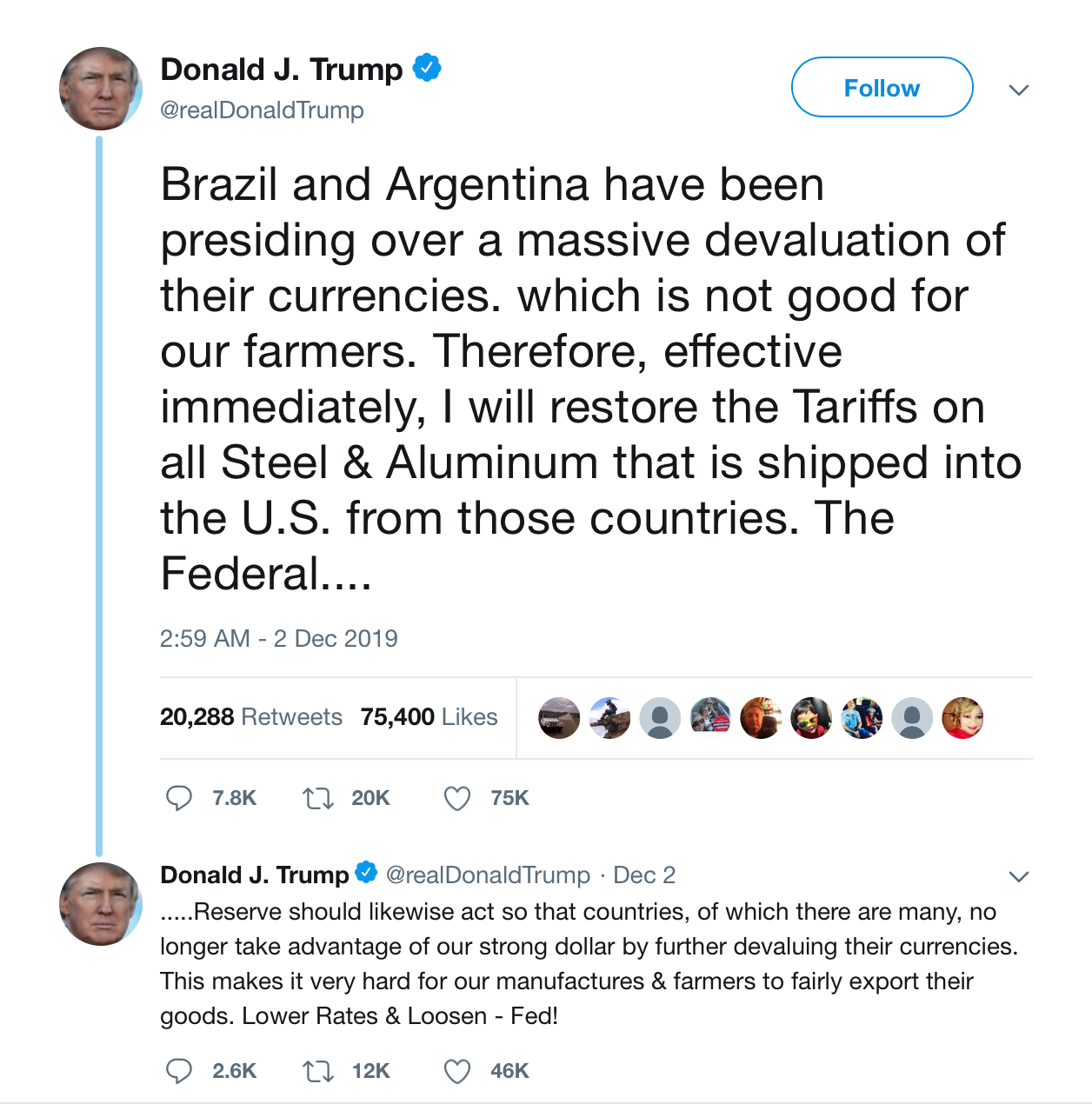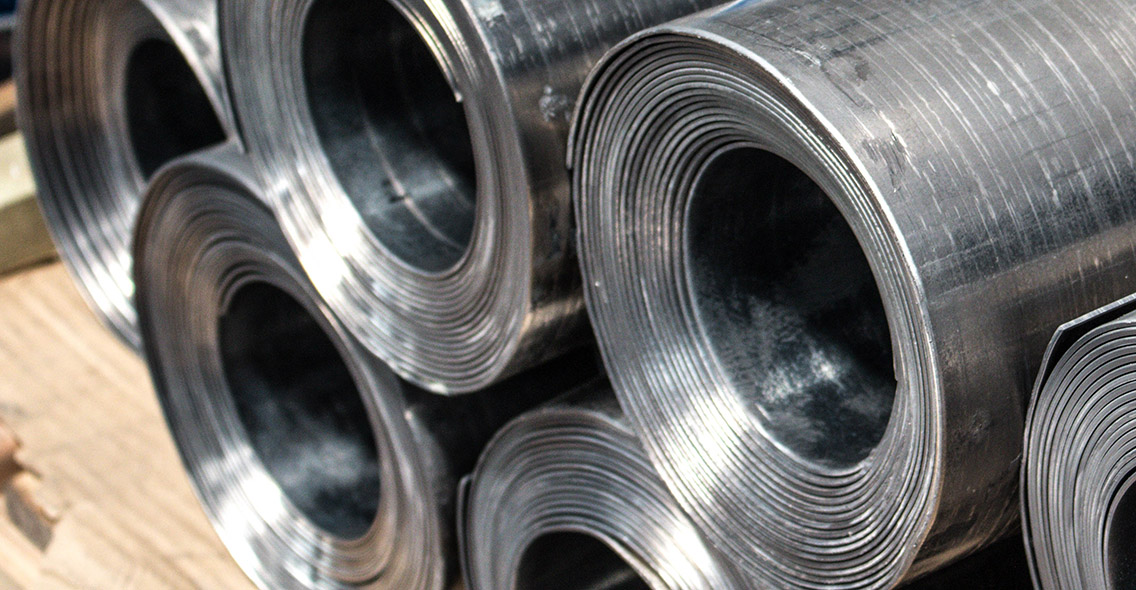In a Twitter post on December 2, 2019, the United States President, Donald Trump, announced intentions to remove tariff exemptions “effective immediately” on steel and aluminum granted to Brazil and Argentina last year.
 Citing Brazil and Argentina’s massive devaluation of their currencies which enabled China to increase purchases of agricultural products, in turn, damaging the Chinese export market for U.S. farmers. Brazil’s currency, the real, has decreased over 8% since January 1 while Argentina’s peso dropped over 37 percent in the same time frame.
Citing Brazil and Argentina’s massive devaluation of their currencies which enabled China to increase purchases of agricultural products, in turn, damaging the Chinese export market for U.S. farmers. Brazil’s currency, the real, has decreased over 8% since January 1 while Argentina’s peso dropped over 37 percent in the same time frame.
When Brazil and Argentina were granted their exemptions back in 2018, the White House implemented a quota system to regulate the excluded steel imports coming into the U.S.
“Brazil and Argentina have been presiding over a massive devaluation of their currencies. Which is not good for our farmers. Therefore, effective immediately, I will restore the Tariffs on all Steel & Aluminum that is shipped into the U.S. from those countries. The Federal Reserve should likewise act so that countries, of which there are many, no longer take advantage of our strong dollar by further devaluing their currencies. This makes it very hard for our manufactures & farmers to fairly export their goods. Lower Rates & Loosen – Fed!”
Now, as Brazil and Argentina imports face the full 25 percent tariff on steel and 10 percent on aluminum, the question remains if the tariffs will apply independently or in conjunction with the existing quotas.
A Federal Register notice has not been officially issued with the effective dates, full details of the program (including the status of cargo now in transit to the United States), or available exclusion request procedures for importers.
Currently, the Department of Commerce, accepts exclusion requests from other countries subject to Section 232 steel and aluminum tariffs, and will likely include the newly re-implemented penalties.
Shippers should contact their Trade Compliance managers to prepare exclusion requests in anticipation of additional duties to mitigate impact to supply and operations.
Organizations looking to submit, object to, or rebut an exclusion request, must take action via the Section 232 Exclusion Portal.
As Green continues to monitor the situation, stay up-to-date on freight news by following us on Facebook, Twitter, and LinkedIn. For continuous updates, make sure to check out our website at greenworldwide.com.






